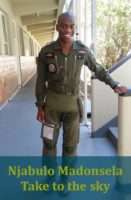Known for his tall stature, his swaggy walk and speaking tsotsitaal all the time, our next Inspiring Tomorrow candidate embodies the definition of umjita waselokishini. Growing up in the dusty streets of Dice, deep in the green area of Reeston in East London, Siyanda ‘Vard’ Mhlana had to walk the walk and talk the talk at a young age.
Vard, as he is fondly called by those who know him intimately, was born in August 1994 and was raised in a household of 11 siblings.
“Life was a bit hectic ekukhuleni. I grew up with a single parent. Fortunately, endlini we didn’t have cousins, although we were cousins. We treated each other like brothers. I have never felt the void of a father figure.”
To understand the elegance of Dice, you would have to have grown up there. The sense of community and love from the people of Dice is one thing Vard says made life growing up somewhat easy. He would be given lunch money for school if he had no lunch to carry by his neighbours even.
Everyone who knows Vard knew him by his friends, a group of misfits that never took off the school uniform, long after school has ended. They were an enigma; most boys wanted to be them while girls wanted to date them. They were definition of what most Dice residents called icast or imanskap.
“Dice is full of mysteries and in order to survive you have to become another perso. I had to talk, walk different, just to make a name for myself. Without noticing, that became a part of who I am.”
Growing up Siyanda didn’t care much for school; he would always act like he was going to school when he was actually going to go play games. No one really paid attention at home, because most people at his house didn’t finish school. So, no one would look at his school books to see if he was submitting work or not. That was until his mom found out the truth.
“When my mom found out that I was not attending school, she became furious and stricter. I have never repeated a grade and she made sure that she was involved in my academics,”
Vard matriculated in 2014, an honour he thanks his mother for as he didn’t “want to disappoint her.”
After matric in 2015 he wasn’t accepted in any university, so he managed to get a part time job at East London golf course but he then decided to rewrite his matric,
“My mom encouraged me to rewrite not because I failed but to keep my mind busy, ndandingafuni ingqondo iruse. The following year I was accepted at Walter Sisulu University,”
Even through the temptations of drug and alcohol use, Siyanda always put his principles first. He had to do a lot of growing and self-reflection to understand the consequences of whatever actions he chose to take. He really credits his manskap for being the boy he was then and the man he is now.
“I always associate myself with good company. You touch one of us, you touch us all; that was and is always our slogan,”
When he was in high school, Siyanda was such a dedicated student that he created a good relationship with his teachers. Two have become mentors in his life.
“Mam’ Mbana and Tsalube both made me realise that there was more to life than the streets and they made me realise my true potential in school. They became important figures in my life.”
Siyanda has become many things to many people in his community, but his dedication to his education so he can better the lives of the people he loves is what makes him an inspiration. Those who grew up with him know him as ‘Mr Adviser’ because he is always an ear for those, he surrounds himself with. His words of inspiration to kids who are growing up just like him are:
“Life is too short to try to fit in, stay in your lane and strive for the best. Never let the environment you grew up in influence you, instead create your own environment within the one you living in. You will never go wrong.”
Vard is currently a graduate in teaching, one of his proudest moments yet, but the sky is definitely not the limit for him. He is looking forward to what the future has in store for him.
***
If you enjoyed this article read about a Limpopo farmer geared for success here.
Tell us: What touched you the most about Siyanda’s story?






